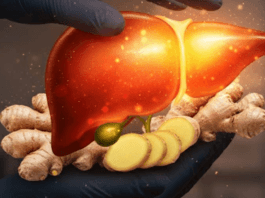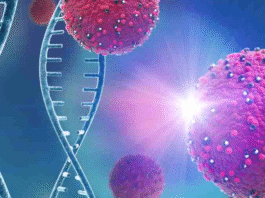Can genes reduce the risk of a heart attack?
Table of Contents
- The Hidden Connection: How genes reduce heart attack
- Can You Really Outrun Your DNA?
- The Role of Cholesterol and Lipids in the Heart
- How genes reduce heart attack by Managing Lipid Levels
- When Lifestyle Trumps Genetics
- The Influence of Family History
- Mind Over Matter: Managing Anxiety About Heart Health
- How to Outsmart Risk Factors That Genes Can’t Control
- The Future of Health: Can genes reduce heart attack Through Innovation?
- Your Heart, Your Rules
1. The Hidden Connection: How genes reduce heart attack
Most people think of their heart as something that beats on autopilot — a biological engine that just keeps going. But deep inside your cells, your DNA carries instructions that can either strengthen that engine or make it more vulnerable. Scientists have long explored how genes reduce heart attack by regulating blood pressure, cholesterol, and the way fats are processed.
Now, here’s the tricky part: while genes reduce heart attack risk in some people, others inherit variants that do the opposite. In other words, the same set of instructions that keeps one person’s heart strong can make another person more prone to blockages.
But don’t panic — genetics are just one part of a much bigger equation. The good news? You can’t rewrite your DNA, but you can influence how it behaves. And that’s where lifestyle steps in to prove that destiny is not fixed.
2. Can You Really Outrun Your DNA?
It’s a fair question — if you’re born with a certain genetic setup, can you actually override it? Many studies say yes, to a surprising extent. While genes reduce heart attack risk by balancing cholesterol and supporting arterial health, daily choices either amplify or silence those benefits.
The Balance Between Genes and Environment
Even when genes reduce heart attack probability, a poor diet or sedentary lifestyle can undo all the good. Think of it like this — your genes hand you the blueprint, but your habits build the house. You wouldn’t blame the architect if you never maintained the roof, right?
The Power of Epigenetics
Epigenetics is the science of how behaviors influence gene expression. That means even when genes reduce heart attack, their potential depends on triggers like stress, food, or smoking. Essentially, your choices tell your genes when to “speak up” or “stay silent.”
So yes, you can outrun your DNA — not by denying it, but by managing how it behaves.
3. The Role of Cholesterol and Lipids in the Heart
Cholesterol isn’t the villain it’s made out to be. Your body needs it for hormone production and cell repair. But when LDL — the so-called “bad” cholesterol — builds up in your arteries, things get dangerous fast.
How Cholesterol Becomes a Threat
Excess LDL cholesterol can stick to artery walls, forming plaques that narrow blood flow. If one of those plaques ruptures, it can trigger a clot — the main culprit behind most heart attacks.
This is where genes reduce heart attack risk by controlling how efficiently your body clears cholesterol from the blood. Some people naturally keep lower LDL levels because of genetic factors that keep their lipid system in check.
4. How genes reduce heart attack by Managing Lipid Levels

Here’s where things get fascinating. Some people are born with a genetic ability to regulate cholesterol more effectively. That means genes reduce heart attack risk by instructing the body to keep lipid levels stable and prevent buildup in arteries.
The Body’s Natural Balancing Act
When genes reduce heart attack risk through lipid control, they’re essentially teaching the body how to keep clean, flexible blood vessels. That keeps the heart pumping efficiently and reduces the chance of dangerous blockages.
The Flip Side — When Genes Misfire
Of course, not all genes play nice. Some people inherit traits that do the opposite — raising bad cholesterol and making arteries stiffer. But even in these cases, understanding that genes reduce heart attack only partially gives you power. You can use that knowledge to double down on healthy living.
5. When Lifestyle Trumps Genetics
You think genes are destiny — they’re not. The truth is, your everyday choices often speak louder than DNA. Even if genes reduce heart attack potential, bad habits can cancel out the advantage.
Exercise — The Natural Heart Protector
Exercise teaches your heart to work more efficiently. It improves circulation, lowers blood pressure, and balances cholesterol. In short, even when genes reduce heart attack, physical activity enhances that protection tenfold.
Food — The Gene Whisperer
Your diet talks to your genes. Whole grains, fruits, and vegetables trigger positive gene expressions that help lower inflammation and cholesterol. So, in a sense, healthy eating allows genes reduce heart attack naturally — a partnership between biology and choice.
6. The Influence of Family History

Ever been told, “It runs in the family”? That phrase carries both truth and exaggeration. Family history can signal risk, but it’s not a prophecy. When genes reduce heart attack in one generation, the effect will shift in the next depending on lifestyle.
Recognizing Patterns
If several family members experienced heart issues young, that’s a clue. But just as genes reduce heart attack in some, others can counteract inherited risk by living smarter.
The Power of Awareness
Knowing your family’s heart health story is empowering. It lets you track what’s coming and take steps early. The simple awareness that genes reduce heart attack for some but not all can motivate you to stay alert and proactive.
7. Mind Over Matter: Managing Anxiety About Heart Health
It’s easy to worry about something as serious as heart disease. Many people live with silent anxiety, constantly checking their pulse or Googling symptoms. But that fear can do more harm than good.
When Fear Mimics Symptoms
Sometimes, anxiety creates sensations that feel like a heart problem — tightness, breathlessness, or a racing pulse. While genes reduce heart attack risk biologically, a calm mind protects it emotionally.
Coping Mechanisms That Help
- Practice relaxation techniques — deep breathing, meditation, or mindfulness.
- Talk to your doctor when something feels off instead of guessing.
- Stay active; exercise is nature’s anti-anxiety medicine.
Even when genes reduce heart attack, mental balance is essential to keeping your body in sync.
8. How to Outsmart Risk Factors That Genes Can’t Control
Some risks are universal — high blood pressure, poor diet, smoking. But your genes don’t decide everything. You do.
Small Habits, Big Impact
Simple actions like walking daily, limiting alcohol, and eating less processed food can be transformative. In these cases, your behavior amplifies how genes reduce heart attack potential.
The Weight Factor
Obesity increases the workload on your heart. Even when genes reduce heart attack, extra fat tissue can override that advantage. Maintaining a healthy weight ensures your genetic blessings aren’t wasted.
Monitoring Your Numbers
Routine check-ups help detect trouble early — blood pressure, sugar, cholesterol. These data points guide you in using the advantage that genes reduce heart attack gives you.
9. The Future of Health: Can genes reduce heart attack Through Innovation?

We’re moving into an age where medicine will one day rewrite our genetic code. While that sounds futuristic, early progress hints at it. Imagine using technology to amplify the way genes reduce heart attack risk — a possibility that’s inching closer.
The Role of Preventive Medicine
Preventive medicine combines data, lifestyle monitoring, and genetic awareness. By understanding how genes reduce heart attack, doctors design personalized health plans instead of one-size-fits-all advice.
The Ethical Edge
Of course, gene-based medicine raises questions — affordability, access, and fairness. Still, it’s hard not to be optimistic when you realize how genes reduce heart attack shape the next generation of health.
10. Your Heart, Your Rules
Here’s the takeaway — yes, genes reduce heart attack by influencing cholesterol, blood pressure, and overall cardiovascular efficiency. But the most powerful tool you have isn’t your DNA; it’s your discipline.
The Human Advantage
Genes set the stage, but your choices write the script. Each time you exercise, eat smart, and stay calm, you help genes reduce heart attacks more effectively.
A Future Built on Balance
Don’t wait for genetic miracles or futuristic medicine. Act now. Because even when genes reduce heart attack, your lifestyle determines whether that genetic advantage truly pays off.
Genes reduce heart attack. The Final Word
Your heart listens to your habits more than your heritage. Treat it kindly, challenge it daily, and respect its limits. When you do, you’re not just letting genes reduce heart attack — you’re proving that nature and nurture can work beautifully together.
Discover more from currentnewschannel.com
Subscribe to get the latest posts sent to your email.













